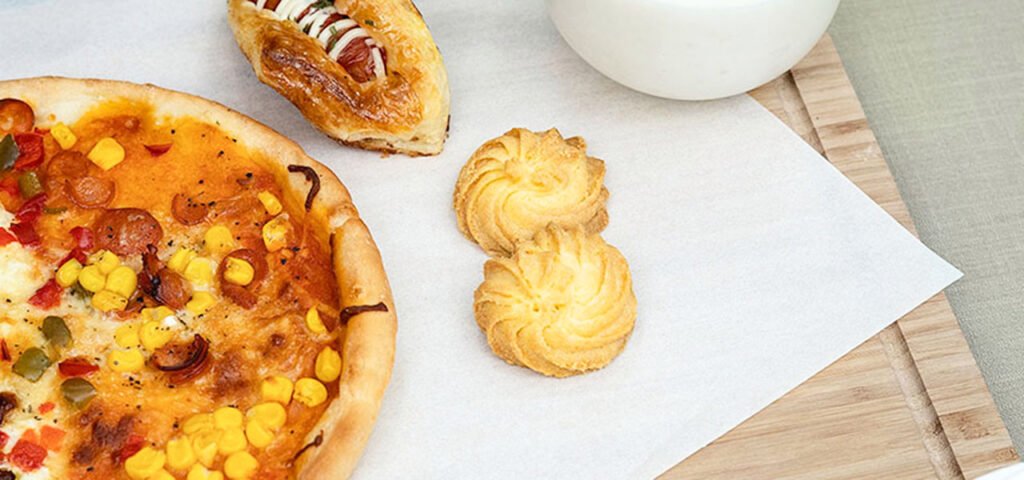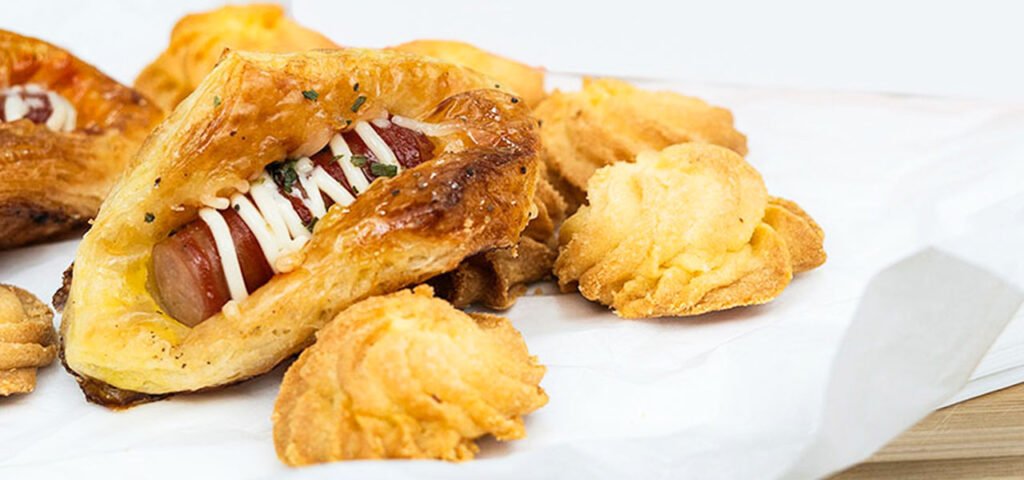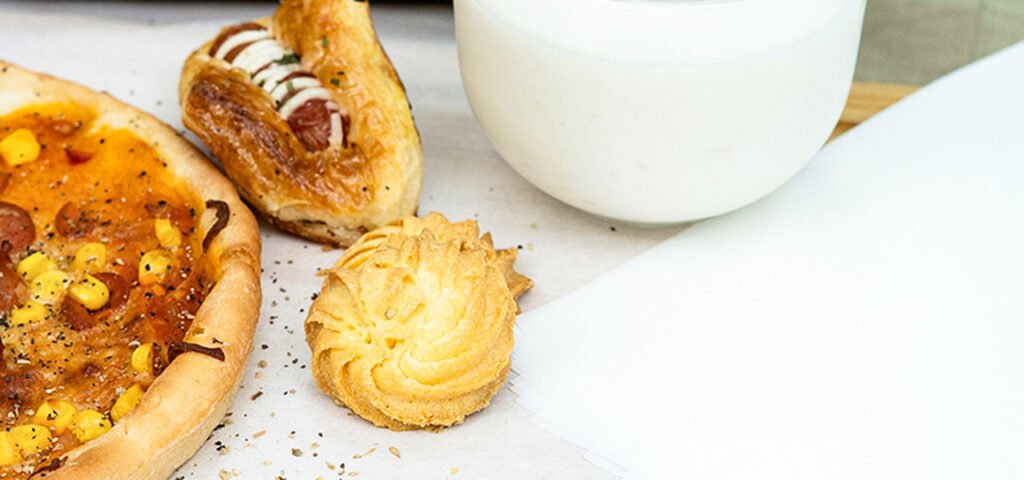When it comes to baking paper performance, one number matters more than most buyers realize: GSM (grams per square meter). From how well the sheet resists heat to how much oil it can handle, the thickness of baking paper directly affects durability, food safety, and baking results—especially in commercial and industrial settings.
At Runjia New Materials, we manufacture food-grade baking paper in a wide range of GSM levels to serve distributors, foodservice chains, and private-label brands across 30+ countries. If you’re sourcing baking paper for ovens, packaging kits, or frozen meal applications, understanding GSM selection is key to getting the best performance at the best price.

🔍 What Does GSM Mean in Baking Paper?
GSM stands for grams per square meter and measures the weight and density of the paper. In baking paper, this affects everything from heat endurance to grease absorption.
| GSM Range | Application | Characteristics |
|---|---|---|
| 35–40 GSM | Light pastry & single-use sheets | Thin, flexible, cost-effective |
| 40–45 GSM | Standard commercial baking | Balanced strength & heat resistance |
| 50–60 GSM | Heavy-duty cooking & high-moisture foods | Durable, grease-blocking |
| 60+ GSM | Industrial ovens & long baking cycles | Maximum tear & heat resistance |
Higher GSM usually means thicker, stronger paper, ideal for demanding cooking or packaging environments.

🔥 1. High GSM = Better Heat Resistance
Baking paper is expected to hold up under extreme heat—but not all sheets perform equally. Thicker paper has higher thermal stability, making it ideal for:
- Long baking sessions (12+ minutes or more)
- Ovens exceeding 230°C (446°F)
- Roasting fatty meats or cheese-filled pastries
- Industrial conveyor ovens and baking tunnels
While Runjia’s 40–45 GSM paper is rated for standard bakery use, our 50–60 GSM heavy-duty paper performs better under prolonged heat—without scorching, curling, or tearing.
💧 2. Grease & Moisture Barrier Protection
Ever had oil seep through baking paper onto the tray? That’s usually a sign of low GSM or poor-quality coatings.
Higher GSM = better barrier performance. Denser fibers trap grease more effectively, reducing soggy bottoms and oil-stained packaging.
Runjia’s 50–60 GSM baking papers are engineered for:
- Croissants, bacon, puff pastry—foods that release a lot of fat
- Frozen lasagna trays and ready meals
- Meal kits that require reheating without leaking or tearing
We also offer PFAS-free, silicone-coated options that meet EU 1935/2004 and FDA 21 CFR food-contact safety standards.
💪 3. Tear Resistance in Fast-Paced Production
For commercial bakeries, meal prep kits, or OEM packaging lines, low-quality paper can slow down your operation. That’s why durability matters.
High-GSM paper resists:
- Tearing from mechanical dispensers
- Folding fatigue when forming tray liners
- Structural breakdown during steaming or oil exposure
Runjia’s baking paper is reinforced for automated handling, high-moisture resilience, and multi-layer baking applications—ideal for high-throughput kitchens and packaging workflows.

🛒 4. How to Choose the Right GSM for Your Application
Here’s a quick cheat sheet to help B2B buyers choose the right GSM:
| Application | Recommended GSM | Reason |
|---|---|---|
| Light pastries, short bakes | 35–40 GSM | Cost-effective, flexible |
| Standard baking (cookies, bread) | 40–45 GSM | Balanced strength & usability |
| Oily foods or longer bakes | 50–60 GSM | Better grease barrier & heat tolerance |
| Industrial ovens or meal kits | 60+ GSM | Tear-proof, high-performance |
At Runjia, we support custom GSM orders based on your baking specs, tray sizes, and oven formats.
♻️ 5. Is Thicker Baking Paper Less Eco-Friendly?
Not at all. Runjia’s high-GSM baking papers are designed for sustainability without compromise:
- FSC-certified virgin pulp
- PFAS-free, chlorine-free, and biodegradable
- Plastic-free packaging available
- Compatible with compostable formats for eco-conscious brands
So, even at higher GSM levels, our papers remain fully recyclable and safe for food contact, helping you stay compliant with EU Green Deal, California SB54, and similar mandates.
🧾 Final Takeaway: GSM = Performance, Protection, and Profitability
Whether you’re baking at scale or packaging for retail, choosing the right baking paper thickness is more than a technical detail—it’s a competitive advantage.
✅ Avoid soggy food and torn sheets
✅ Improve oven-to-package consistency
✅ Match paper durability to baking duration
✅ Cut waste with the right format from the start
At Runjia, we offer custom thickness options with global certification and OEM flexibility—backed by fast delivery, stable pricing, and quality assurance you can rely on.
📩 Email: sales21@runjianewmaterial.com
🌐 Website: https://runjiapaper.com
📘 Facebook: Runjia Facebook Page








